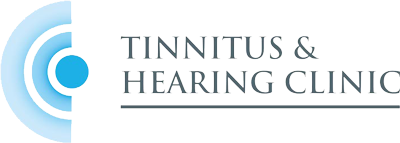With around 21,000 workers experiencing work-related hearing issues (according to the Health and Safety Executive), it is clear that more can be done to protect employees from the detrimental health effects of working in a noisy environment.
Ear safety and the law
Employers are legally obliged to ensure health and safety in the workplace. This includes protecting the hearing of employees.
The Control of Noise at Work Regulations 2005 gives specific guidance on the employer’s duty to ensure safe noise levels and the type and frequency of safety checks that must be carried out. The regulations also mandate the provision of employee Personal Protective Equipment (PPE).
What is a ‘safe’ noise level?
There is a legal limit of 87 decibels (dB) for the average noise level in a workplace. That’s about the same as heavy traffic noise, and a louder than average conversation (60dB) but not quite as loud as somebody shouting (90-95dB).
Most power tools operate at levels between 90dB (orbital sander) and 114dB (hammer drill).
A loud explosive noise such as a gunshot (around 140dB at a 30m distance) may cause instant hearing loss, known as acoustic shock. That said, it is not usually these individual short bursts of very loud noise that are the cause of workplace hearing loss. Tinnitus and hearing loss can be caused by repeated exposure to relatively moderate levels over a sustained period.
It’s not just people working with noisy equipment who may be exposed to long-term noise. Workers in call centres, busy bars or nightclubs, teachers in chattering classrooms, or any place where there is a sustained level of background noise, may be at risk of hearing loss and tinnitus.
So what are an employer’s obligations?
First, the employer must carry out regular safety checks to see if noise levels are being exceeded. The type and frequency of these checks depend on the level of risk of hearing damage. For example, a building site may require more frequent checks than an office. The cause of the loud noise is immaterial, so each environment must be assessed on its own merit.
If noise levels are above 80dB then action must be taken:
- Providing ear protection
- Limiting the time the employee is exposed to the noise level
- Ensuring that all staff understand noise risks and the procedures staff must follow to minimise these risks
- If noise levels are high enough to be a risk to an individual’s long-term hearing, the employer also needs to provide regular hearing tests, either through in-house occupational health services or an outside audiologist
Providing ear protection
The right PPE to protect an employee from the risk of developing tinnitus and hearing loss will depend on the workplace environment, the type of work being undertaken, and the equipment being used.
For example, power tools emit high-frequency sounds and these are better reduced by ear defenders. Low-frequency sounds, such as those from tractors or large plant machinery can be reduced with earplugs. Neither option is ideal for a call centre worker who relies on being able to hear a conversation. In such cases, a white noise machine will smooth out peak noise without hampering conversation.
Sometimes the standard PPE provided may be unsuitable for an individual. Wearing glasses may mean ear defenders do not fit snugly, for example. An employer will have to consider affected employees’ needs separately.
It should be stressed that earplugs available from high street retailers are designed only for sleeping, air travel or swimming and therefore may not provide adequate protection in a noisy workplace.
I am concerned about noise levels at work
Your hearing is important and you should take all possible precautions to safeguard it.
As soon as you have concerns about noise levels, speak to your employer or HR department. It is better to be proactive and prevent the problem from developing into something more serious. Even if noise levels are below the legal limit, your employer should provide ear protection if you request it.
If you have already experienced some hearing problems (whether through work or otherwise) you must be given special consideration by your employer.
How can I tell if I have a hearing problem?
Although hearing usually degrades with age, it can occur at any age. Early signs of hearing loss include muffled speech or difficulty hearing speech in a loud environment. Acoustic shock may be accompanied by tinnitus and pain.
Tinnitus affects 1 in 5 people. You may not be aware that you have it as symptoms can be subtle. Tinnitus is characterised by the hearing of sound when no external sound is present.
Both tinnitus and hearing loss can occur in one or both ears.
If you are experiencing any of the above, it is important to visit a health professional, such as an audiologist or doctor, without delay. Acting quickly may help reduce the risk of further damage.
Consulting an audiologist will also help establish the cause of the hearing injury, and the diagnosis may be useful should you need to pursue a compensation claim against your employer.
I have sustained hearing damage at work
If you have experienced hearing problems caused by your job then your employer may be found liable if they have failed to identify the risks or put suitable safety measures in place. You have a right to claim compensation from your employer if their negligence can be established.
Financial compensation for tinnitus and hearing loss can be broken down into:
- General damages for pain, suffering and loss of amenity resulting from your hearing loss
- Special damages for any financial costs or losses incurred, such as:
- Loss of earnings (including future loss)
- Medical treatments (e.g. audiologists’ treatments)
- Cost of any device prescriptions (e.g. hearing aids)
Any legal claim would need to be supported by evidence, usually a medical report from a qualified audiologist. The claim must be started by your solicitor within three years of the date of diagnosis, or the date that you could have reasonably been aware that your condition was caused by your job.



